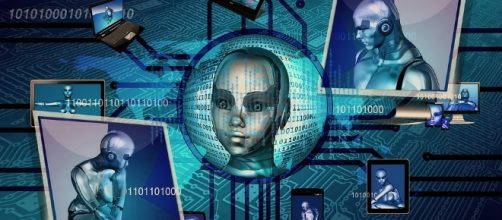In recent years, Artificial Intelligence (AI) has proven its usefulness in various fields of sciences. And in a recent study, therapists can reportedly use machine learning or AI in solving relationship issues.
Even though some tech experts believe that AI poses a great risk to humanity, its usefulness and beneficial impact in human lives are simply undeniable. Due to its continuing development and influence, artificial intelligence has evolved into a significant industry in this modernized era.
How #Robots Are Changing the Way You See a #Doctor https://t.co/Gy2DbgwZGH#ArtificialIntelligence #MachineLearning #AI #tech #bigdata #IBM pic.twitter.com/ruwbxRThYb
— Maria Johnsen (@iMariaJohnsen) October 6, 2017
The framework
Created by a team of researchers from the University of Utah and the University of Southern California, the new AI-based tool aims to help therapists by estimating “the length of each individual relationship” through the analysis of the couple’s voice tone when they talk to each other during problem-solving exchanges.
MarketWatch explained that these “acoustic features” such as jitter, pitch, intensity, and shimmer give valuable signals for detecting any changes, improvement or deterioration in the relationship status or the last therapy appointment.
What is really interesting about this new AI innovation is the fact that the results of its analysis of recorded audio and video samples were comparable or even better than those given by human specialists. By looking into the other relationships in the database, the tool provides a “valuable set of cues” to help determine and gauge a trend and prognosis.
With that said, experts suggested that combining the therapists’ expertise and AI technology could yield a “higher success rate” in improving the relationships of couples undergoing therapy.
The innovation also stressed the significance of the voice tone in daily interactions.
Skills gap
In other related news, the rise and pervasiveness of artificial intelligence are making a lot of people worry, especially when it comes to losing their jobs. However, BBC News reported that tech companies are “struggling to find qualified employees.”
According to the publication, the shortage of qualified workers in the AI-industry sector is partly due to the “massive Skills Gap” in education systems. Oxford Robotics Institute head professor Paul Newman said that the United Kingdom is still far from producing adequate employees who are skilled in data analysis, machine learning, computing, and coding.
That is why Newman stressed the need to solve the shortage and AI skills gap by starting in schools. Indeed economist Mariano Mamertino added that investment in education could be beneficial to the AI industry.
Sheffield University’s AI and Robotics emeritus professor Noel Sharkey, on the other hand, highlighted the need for “female talents” in computer science. Sharkey added that more people are needed in the STEM (Science, Technology, Arts, and Mathematics).
Threat to humanity
A new research titled, “Sex, Lies, and AI,” from WPP digital agency SYZYGY showed that 43 percent of the American population is worried about the impact of artificial intelligence on the “long-term survival of humanity.” Among the top fears is the concern on AI’s potential to take over the world.
9 types of human #intelligence! As #AI matures, it's less about #tech, more about the relationship between human + #artificialIntelligence. pic.twitter.com/riVKzO1hit
— Mike Quindazzi ✨ (@MikeQuindazzi) October 4, 2017
The study also suggested that 59 percent of Americans believe that AI is affecting their lives, while 79 percent think that impersonation of human beings through AI should be illegal. As for using the technology in wars and armed conflicts, 71 percent of Americans agree that autonomous weaponized robots and drones should be allowed.
When it comes to hyper-realistic sex robots, 47 percent of men and 78 percent of women consider sex with a sex robot as a form of cheating. Furthermore, 50 percent of the population think that self-driving cars are designed to “minimize overall harm” in accidents.
Despite the fears on the rise of AI, people also see the advantages and potential of modern technology in making lives easier, SYZYGY managing director Megan Harris said. However, they also recognize its “dark side” that is why people also want experts to devise guidelines against ethical abuses.


